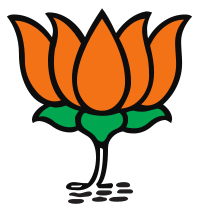
Photo from wikipedia
Since voters are often swayed more by the personal image of politicians than by party manifestos, they may cast votes that are in opposition to their policy preferences. This results… Click to show full abstract
Since voters are often swayed more by the personal image of politicians than by party manifestos, they may cast votes that are in opposition to their policy preferences. This results in the election of representatives who do not correspond exactly to the voters’ own views. An alternative voting procedure to avoid this type of election failure is prompted by the approach implemented in internet voting advice applications, like the German Wahl-O-Mat, which asks the user a number of questions on topical policy issues; the computer program, drawing on all the parties’ answers, finds for the user the best-matching party, the second-best-matching party, etc. Under the proposed alternative election method, the voters cast no direct votes. Rather, they are asked about their preferences on the policy issues as declared in the party manifestos (Introduce nationwide minimum wage? Yes/No; Introduce a speed limit on the motorways? Yes/No, etc.), which reveals the balance of public opinion on each issue. These embedded referenda measure the degree to which the parties’ policies match the preferences of the electorate. The parliament seats are then distributed among the parties in proportion to their indices of popularity (the average percentage of the population represented on all the issues) and universality (frequency in representing a majority). This paper reports on an experimental application of this method during the election of the Karlsruhe Institute of Technology Student Parliament on July 4–8, 2016. The experiment shows that the alternative election method can increase the representativeness of the Student Parliament. We also discuss some traits and bottlenecks of the method that should be taken into account when preparing elections.
Journal Title: Group Decision and Negotiation
Year Published: 2017
Link to full text (if available)
Share on Social Media: Sign Up to like & get
recommendations!